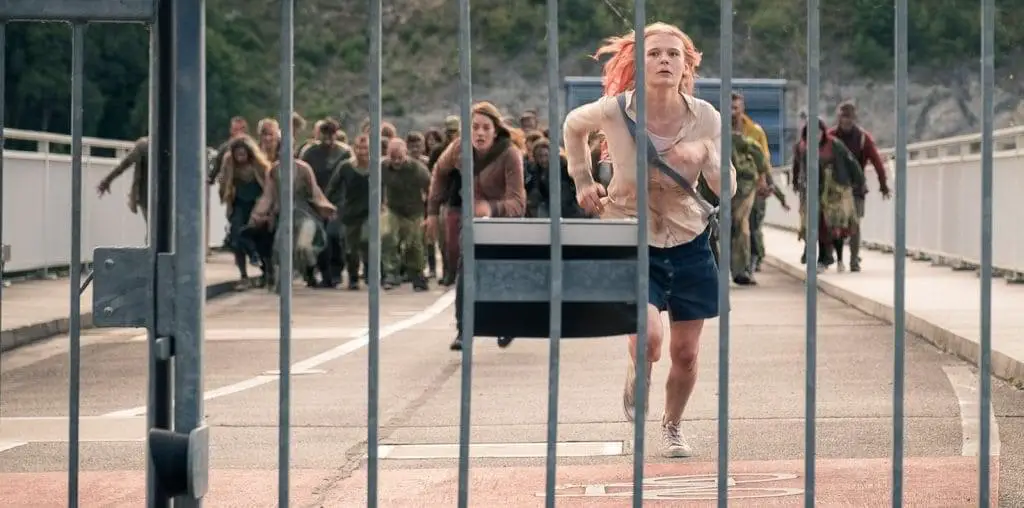
Are you having problems locating a genuinely original, intriguing and entertaining independent film? Then set your sights on the Marshall Islands. Yes, that far-flung corner of the Pacific Rim is home to one of the most remarkable little films to fly in under the proverbial radar: “Yokwe Bartowe,” a no-budget/high-imagination fantasy that can sincerely lay claim to being among the most original cinematic endeavors to emerge in quite some time.
“Yokwe Bartowe” involves the interconnected fates of two siblings: the 20-year-old college student Bartowe and his kid sister Lijiamao. One fine afternoon, Lijiamao disappears while swimming in a lagoon. It is assumed that she drowned, even though her body is never recovered, and Bartowe – who was supposed to be watching her – is blamed for her death by their parents. Poor Bartowe’s life falls apart and he become a pathetic alcoholic.
However, Lijiamao did not die. Instead, she is kidnapped by a demonic bird-spirit that keeps her as a companion. This is part of the Marshall Islands’ legend of the kwolej bird, which goes through its feathered life creating tragedy for the unsuspecting bipeds who walk beneath its flight.
Fortunately for Bartowe, he has an unusual ally in Lijimu, an elderly lady who is kept in pariah status because of her alleged witchcraft powers. Bartowe discovers to his astonishment that Lijimu’s reputation is not entirely based in gossip, and the old gal uses her magic against the kwolej spirit that keeps Lijiamao as a prisoner.
By U.S. standards, “Yokwe Bartowe” is not the most sophisticated endeavors. Directors Jack Niedenthal and Suzanne Chutaro make no effort to hide the bare bones production values, particularly in the mystical elements where young Lijiamao and her kwolej captor wear feathered headdresses and flimsy costumes to suggest an unholy union of avian and human spirits. And the sequence where Lijimu communicates with her deceased family is more than a bit cheesy, with the recently deceased depicted as hovering together in the dark while weak lights illuminate them from floor level.
Yet if “Yokwe Bartowe” fails to score points for polish, it slam dunks with spirit and personality. Niedenthal and Chutaro guide their nonprofessional cast through a screenplay that is fairly complex with issues relating to spiritualism, guilt, miscreancy, angst and emotional isolation. If the film is missing the razzmatazz of the CGI-heavy productions from Hollywood, it more than compensates with the raw, visceral power one associates from folk art – it throbs with a genuine sense of emotion and honesty, demanding that its voice be heard and respected.
Furthermore, the film’s screenplay (written by Niedenthal) is anything but predictable. The characters are have richly textured personalities, and even secondary roles – including a classmate of Lijiamao who refuses to believe her friend died and a quartet of miscreants who indulge in café-base inebriation by ordering two cans of beers with four cups for sharing the brew – are genuinely memorable in a cult-worthy manner. And the film’s astonishing denouement – no spoilers here, sorry – happily refuses to accept the standard of a neatly-tied happy ending.
Hopefully, “Yokwe Bartowe” will find its way around the world. This is an extraordinary work that deserves to be seen, and it presents a strong calling card to alert all interested cinematic parties that the Marshall Islands has arrived as a center of memorable film production.

Wow! first marsallese movie uh! Well, at least something is coming out of the tiny atoll of ours.
I don”t believe that we marshallese have a new movie…give up the good work and may god bless our future….
omg!i cant wiat to see this movie….ima t the states so tell when there’s dvd copies okay??
The Marshallese who resided on Majuro are very talented. I am so proud to see them shine bright within corals of the pacific. Keep up the good work, guys.
Kevin, Spirngdale, AR
Having resided in Majuro, RMI, and knowing several of the film principles – and yes, also the principal – for the last three years, we look forward to the opportunity to once again having our hearts rubbed by our close friends in the Marshall Islands.
As strong supporters of Independent and International Film Festivals we shout “Bravo, Brava” to the cast, writers, producers and director. A tip of the hat and a pat on the back to Jack and the “stars” of Majuro! The stars do indeed come out and shine brightly in the Pacific!
We look forward to the next film production coming forth from Majuro! A “hat trick” is in the making!
Congratulations to one and all!
steve and meg, ft. lauderdale, fl.
It’s nice to hear about a mythical piece of folk art that’s distant to the US. Thanks for the review, Phil.
This is a wonderful review of a wonderful film. We are proud to have this film representing the Marshall Islands and the talented people who live here. You should have heard the audience responses when this film was shown at the local theater. Amazing. Thank you for recognizing this film.